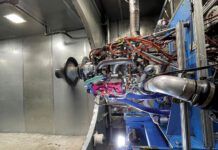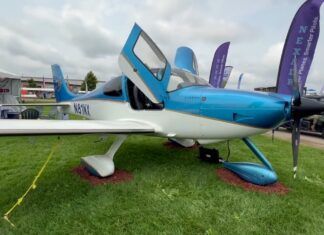If there’s a failsafe way to buy an engine overhaul that will absolutely, positively make it to TBO without so much as a snort, we havent unearthed the formula.
Although the majority of engines probably do make TBO with little more than oil changes and a couple of sets of spark plugs, many engines roll over long before that. And even reputable shops with years in the business turn out the occasional lemon engine that starts making metal 50 hours after it leaves the shop.
Thats what warranties are for. Savvy buyers realize that a shops reputation for standing behind its work matters as much, if not more, than the quality of the overhaul itself. Since the factories bullied their way into the overhaul business early in the decade to recover from the shrinking OEM market, price competition has become intense.
The good news is that according to our periodic surveys of owners, the industry in general does an admirable job of standing behind warranty promises. Although weve heard the inevitable horror stories, both shops and the Lycoming and Continental factories appear to be satisfying warranty claims with few quibbles. Although the shops we talked to are split on the issue of whether the stated warranty is a competitive issue-some say it is, others say it isn’t-there’s a discernible trend toward offering longer warranty coverage and some shops (and the TCM factory) are selling extended warranties for an add-on premium.
The truth is, as a means of building customer loyalty, field shops have traditionally performed far beyond the paper warranty anyway, so extended warranty promises may not carry that much weight. Still, we would rather have a three year/1000 hour stated warranty than the usual six months or 240 hours.
What Customers Say
Last fall, we asked Aviation Consumer readers to tell us about their engine warranty experiences, both with field shops and factory overhauls and remans. We also asked for opinions on what fair warranty coverage should be. Is six months and 240 hours about right or is that outrageously stingy?
To our surprise, favorable comments on warranty performance outweighed the negative by about three to one. Only a dozen readers complained of unsatisfactory treatment from a field shop or one of the factories and in many cases, these related to claims filed after the expiration of the stated warranty or involved quibbles over customer service issues. Given the number of problems with overhauls that we hear about anecdotally, the number of bad experiences almost qualifies as insignificant.
Nor did we note any patterns indicating consistently poor warranty performance by one shop or factory, although Continental took some hits for its high prices, short coverage and what readers characterized as inflexible response. A Sherman Oaks, California reader complained that he paid $27,000 for a Continental factory reman and was denied warranty for a faulty wiring harness because of installation errors. Another griped that Continental offers essentially no warranty because of difficult or slow performance on claims.
On the other hand, just as many readers reported satisfactory if not favorable dealings with Continental on warranty issues. A Vero Beach, Florida aircraft onwner bought a TCM reman and suffered what has become a common occurrence for owners of large-bore Continental engines: loss of compression after a few hundred hours of operation. Youngs cylinders went soft at 230 hours-10 hours shy of the 240-hour limit. The factory replaced all six cylinders at no cost.
The Lycoming factory-which seems to have a reputation for being somewhat more flexible on warranty claims than is Continental-drew its share of positive if not enthusiastic nods of approval.
Although field shops often snipe at the factories for being unwilling to perform beyond the terms of the stated paper warranty, our survey suggests that this isn’t entirely true. In at least two cases we know about, Continental reached an accommodation with customers after the expiration of the stated full-coverage warranty. Similarly, Lycoming, when pushed by an insistent customer, provided a set of replacement cylinders at cost beyond the one-year warranty limit.
Field Shops Shine
Effusive praise from owners is reserved for field overhaul shops, somewhat confirming the claim by many shops that even if they cant compete with the factories in price, service after the sale makes a field overhaul a better bargain than one from the factory. Every field shop of any size has a stated paper warranty but the real warranty is a handshake deal that often provides better coverage on a case-by-case basis. As one shop owner told us, thats the best means of building customer loyalty where bad words and complaints spread far and wide. The mother of all favorable customer experiences came from Bonanza owner John Whitehead, who bought an overhauled IO-520-BA from Ultimate Engines, a Mena, Arkansas shop that builds only pricey custom Continental engines for Bonanzas and Barons. Ultimate either overhauls a customers engine or reworks a factory reman to its own higher specs. Whitehead took delivery on his new engine-a reworked reman-in the spring of 1995 and by fall of 1996, with 130 hours on the engine, he noticed metal in the oil filter after his engine monitor showed rising CHT in the number 2 cylinder. Within a few days of reporting the problem, Ultimates Michael Guinn showed up at Whiteheads hangar in Tennessee and installed a loaner engine.
When his own engine was rebuilt, Whitehead flew to Mena and had Ultimate do the swap, all at no charge to him. Ultimate paid for everything, including the services of my mechanic. I wasnt charged a dime.
Ultimates standard warranty is one year and 520 hours, then pro-rated at 20 hours per month based on TBO plus 300 hours. A loaner engine isn’t part of the stated deal but Ultimates Pete LoBello told us his shop will do what it takes to get an AOG customer back in the air. Of course, that kind of service doesnt come cheap, in the form of a much higher bottom line than a run-of-the-mill overhaul would cost.
Several other nationally known shops that drew praise for warranty performance are Mattituck Airbase, Penn Yan Aero Service, T.W. Smith and Victor Aviation, another shop specializing in high-performance custom overhauls. (In the interest of balance, we did hear a couple of warranty-related complaints about Smith and Victor.)
Robert Sparks of Decatur, Alabama, told us he bought an overhauled Lycoming IO-360 for his 1978 Arrow. Two years later, at 304 hours, it rolled over on a flight into Pittsburgh.
Mattituck could not have been nicer, Sparks said, they calculated that I had used 15 percent of expected TBO and they paid 85 percent of everything, including shipping, removing and re-installing. As a result of that experience, says Sparks, Id go with a big name shop again, for obvious reasons.
We don’t quarrel with that advice but it wouldnt cause us to reject a local shop with a well-established reputation. We heard positive comments about a handful of well-respected local shops including Custom Airmotive in Tulsa, Oklahoma, Carter Aircraft in Sebring, Florida and Dick Demars Aero in Fort Collins, Colorado, to name three cited for exemplary warranty service.
Big name shops attract lots of business and their share of complaints, as well. Two readers each complained about warranty issues with T.W. Smith and Victor Aviation. Oddly, these complaints don’t seem to relate to non-performance on the warranty, but customer service issues, such as delivery times and/or financing and payment.
One Oregon reader got into a method-of-payment dispute with Victor that deteriorated into an exchange of nasty letters. The lesson we draw from this is to know ahead of time how the shop expects to be paid and negotiate an upfront agreement or take your business elsewhere.
What Standard?
If there’s such a thing as a standard warranty in the industry, its six months or 240 hours, whichever comes first, for 100 percent parts and labor coverage. After that, coverage is pro-rated to TBO based on 40 hours a month. Some shops do parts and labor, some do parts only and some say it depends. In reality, although thats the stated written warranty, its not the true warranty.
Most shops-and even the factories, from time to time-perform beyond these limitations on a case-by-case basis. In other words, they may extend 100 percent parts and labor coverage beyond the six months or adjust the pro-ration in the customers favor when a warranty claim is filed. A common example: A year into the overhaul, an engine with 90 hours tosses a valve or has some other serious mechanical problem. By rights, the shop is out of the 100 percent parts and labor period and into the parts only pro-ration period. Using the 40-hour paradigm, the shop pro-rates repair costs based on the engine having 480 hours, not the 90 it actually has. On a 2000-hour TBO, the shop would pay 76 percent of the parts bill and the customer would pay the rest, plus labor. But heres where things get fuzzy. Both shops and owners tell us that actual warranty performance varies widely, depending on the engine, the customer and the cause of the failure. If a shop assembly error caused the failure or perhaps the customer is a flightschool that buys a couple of engines a year, reputable shops often realize its cheaper to just fix the problem at no cost or pick up the entire parts tab and pro-rate the labor. This is the stuff of which customer loyalty is made.
If we have a guy who has flown an engine for a year and he comes in with an exhaust guide problem, were not going to leave the customer hanging out there. If we do, we know were not gonna get him back, says Troy Shinkle of G&N Engines, a busy midwest shop with a branch in North Carolina. On paper, G&Ns warranty is one of the least generous: six months and 240 hours, then pro-ration to 1000 hours, not TBO.
Yet G&N has a sterling reputation and Shinkle isn’t sure that stated warranty provides a competitive edge anyway. Other shops don’t agree. Penn Yan has recently increased its stated warranty to two years or 500 hours, up from the one year or 240 hours it used to offer. Blueprint Engines, Inc. has had a longer warranty for several years and recently increased it to three years or 1000 hours, the broadest coverage of any field shop we know of.
Interestingly, in Penn Yans case, the longer warranty applies only if the customer buys cylinders from the shop. If new factory cylinders are used, the factorys shorter warranty (one year) applies. If Lycoming wont warranty their cylinders for two years, why should we? says Penn Yans Bill Middlebrook.
On the other hand, many shops warranty accessories beyond the stated warranty provided by the supplier. Starters and alternators, for example, often come with a 90-day warranty from the rebuilder but overhaulers typically cover them under the same terms as the basic 100 percent parts and labor warranty.
If longer warranties put shops at greater financial risk, few seem worried about it. The thing is, says Middlebrook, we never adhered to our old warranty. We were giving warranties away because we thought it was the right thing to do. All weve done is change our warranty to equal our standards.
Surveying shops, we hear some talk about or actual extensions of the 100 percent parts/labor coverage to a full year or longer. Even the Lycoming factory is considering a longer warranty on its factory overhauls. Bucking the trend, it currently offers a one year, 100 percent warranty on factory overhauls, with no hour limitation and no pro-ration.
Factory remans-which are built to new tolerance, not service limits-get a two-year warranty, but the second year is pro-rated to TBO based on actual hours accumulated, not the 40-hour standard.
Perceived warranty is something people do look at, says Lycomings Paul McBride, I think there’s a tendency to think we already have an edge because were the factory but we could be losing out to field shops.
Exclusions
Every warranty we examined has fine print excluding performance under certain conditions. The major exclusion is the use of automotive gas, the mere mention of which puts engine builders into near apoplexy.
Although the fine-print language seems to void the warranty with any use of autogas, there’s wiggle room here. If I see an engine come back to us in six months with a cracked crankcase and the guy was using autogas, hes going to get full warranty, says Mattitucks Mahlon Russell. On the other hand, if the engine has cylinder or valve damage that could be mogas-induced, its the shops turn to wiggle.
Shops are split on recommended oil use as a condition of warranty. Penn Yan, for example, used to make use of single-weight rather than multi-weight oil a condition of warranty. The shop now strongly recommends but does not require the use of single-weight oils. Blueprint Engines is the only shop we know of that requires the use of an additive, AvBlend. (The catch, of course, is that a Blueprint-allied company markets the product.)
Pay More, Get More
Continental already has an extended warranty program and some field shops are experimenting with the same idea. Extended warranties are common in the consumer electronics industry, where they are often seen as gimmicks to separate the customer from his money. How much sense does it make to buy a $29 extended warranty for a $99 CD player that will probably last forever and wouldnt be worth fixing if it didnt?
Aircraft engines are different. If you own a Cessna 421 or some other pricey cabin class twin, overhauling two engines will cost between $50,000 and $60,000, including all the accessories. Buy factory remans and Continentals standard Gold Medallion warranty covers you for the usual six months or 240 hours. On a $50K investment, many an owner will find that a bit cheesy.
Under the Gold Medallion Plus II warranty, you can pay an additional $1500 for two-year or 720-hour coverage, then pro-rated to TBO at the rate of 30 hours per month. If you sign up for TCMs TopCare cylinder program, the cylinders pro-rate at 25 hours per month.
Shopping that idea around, were not sure if the extended warranty is worth the price or not. If the airplane is flown frequently and the engine(s) are expensive-and a 421 certainly qualifies-it makes sense, especially given the hard luck some owners have had with TCM cylinder life. Buying more coverage on an O-470 in a Cessna 182 thats flown 100 hours a year makes less sense, since you can probably find a field shop that will beat the factory warranty by a little, if not a lot, possibly for less money if youre willing to haggle.
And thats exactly whats going on. Look, there’s no question that our main competition is the factory, says Richard Fowler, of Americas Aircraft Engines in Tulsa, Oklahoma. If a guy comes in here with a Cessna 310 with light cases and a non-VAR crank, I cant compete on price with the factory. But if I can give him a one year warranty to sweeten the deal, thats what Ill do.
Fowlers shop offers what other shops have shied away from: three levels of warranty protection based on price. The standard Eagle I warranty is six months and 240 hours, plus the usual pro-ration. For an additional $1200 to $1800, depending on engine size, a buyer can opt for Eagle II coverage, one year and 500 hours. Eagle III coverage duplicates the factory warranties from Lycoming and Continental. Although not every buyer opts for the extended coverage, Fowler tells us response has been favorable.
Several shops-Victor, Mattituck, Ultimate-sell high-end custom overhauls that carry both premium prices and longer warranties. For a 40 percent additional premium on the overhaul itself, Mattitucks Red Gold has a one year/480 hour warranty while Victors Black Edition is warrantied for one year or 500 hours.
Conclusion
There’s no doubt that price pressure brought about by the factories entry into the overhaul business has put pressure on field shops. Many cant do much to lower their prices, since they lack the factories economy of scale on parts pricing.
But field shops can respond with more favorable warranties and they appear to be doing just that, both in stated warranty and in actual warranty performance. That, in turn, is putting counterpressure on the factories to re-examine their warranty policies.
Overhaul buyers are the ultimate winners, even though the shift toward longer stated warranties may make only a slight difference on a case-by-case basis, since many shops are already providing more generous than promised coverage anyway.
Nonetheless, we welcome a trend in the positive direction, no matter how modest.
Also With This Article
Click here to view How Warranties Compare.
Click here to view “Out-of-Warranty Claims: Good Records Help.”
Click here to view “Why Engines Come Back.”
by Paul Bertorelli




